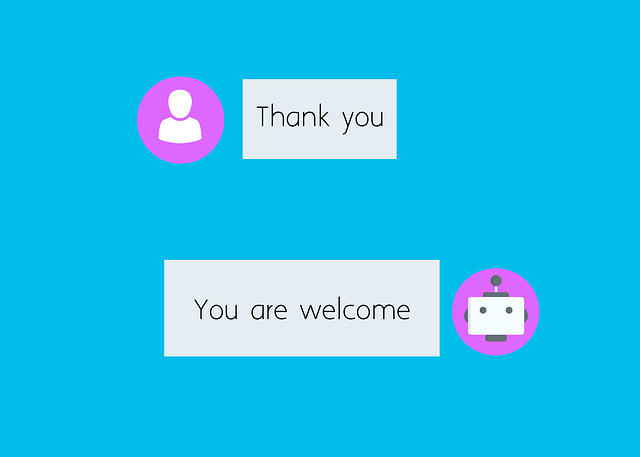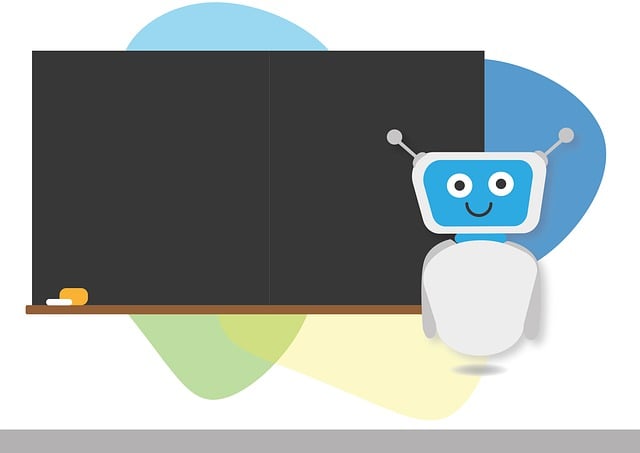Chatbot Shopify integration represents a significant enhancement in e-commerce customer service and sales operations by leveraging AI to provide real-time, personalized support. These conversational agents address customer inquiries continuously, handle FAQs, facilitate purchases, and improve precision in catering to individual needs at scale. The technology's adaptive nature means it becomes more effective over time, managing an expanding array of queries with greater accuracy. This not only leads to improved customer satisfaction but also provides valuable insights into consumer behavior for informed decision-making by Shopify store owners. Chatbots' integration with services like Dialogflow or Microsoft Bot Framework enables custom experiences that align with a brand's identity. They efficiently manage customer interactions, offer product recommendations, and guide shoppers through the purchasing process, optimizing processes and freeing up human staff for more complex tasks. This integration has already shown to boost sales figures and improve the overall user experience on Shopify platforms. In 2023, chatbot technology within Shopify has taken a quantum leap, offering advanced personalized shopping experiences with intelligent product recommendations and proactive support, setting the stage for even more sophisticated interactions in the future.
In today’s fast-paced digital marketplace, Shopify storeowners are continually seeking innovative solutions to elevate customer service and streamline operations. This article delves into the transformative role of chatbots within this ecosystem, exploring how these AI-driven assistants can be seamlessly integrated into Shopify stores to enhance user engagement and satisfaction. We will navigate through the process of customizing chatbot solutions tailored to your unique business needs, discuss the analytics and performance metrics that underscore their effectiveness, and project future advancements in chatbot capabilities for Shopify retailers. Embrace the ‘chatbot shopify’ integration to stay at the forefront of e-commerce evolution and redefine customer interaction.
- Leveraging Chatbots for Enhanced Customer Service on Shopify Stores
- The Integration Process of Chatbots into Shopify E-commerce Platforms
- Customizing Chatbot Solutions to Match Your Shopify Store's Unique Needs
- Measuring the Impact: Analytics and Performance Metrics for Chatbots in Shopify
- Future Trends: The Evolution of Chatbot Capabilities for Shopify Retailers
Leveraging Chatbots for Enhanced Customer Service on Shopify Stores

Integrating chatbots into Shopify stores represents a significant leap forward in customer service enhancement. These AI-driven tools are designed to simulate human conversation, providing instant responses to customer queries around the clock. Chatbots can handle a wide array of tasks, from answering frequently asked questions to guiding users through the purchasing process. By leveraging chatbot shopify integration, retailers can offer personalized shopping experiences at scale, addressing individual customer needs and preferences with precision. The advantage here is twofold: firstly, customers receive immediate assistance, which can lead to increased satisfaction and loyalty; secondly, store owners can manage a large volume of interactions more efficiently, freeing up time and resources to focus on other aspects of their business.
Moreover, chatbots can be programmed with sophisticated algorithms that learn and improve over time. This means that as the chatbot shopify tool interacts with more customers, it becomes more adept at handling a broader range of inquiries and providing solutions that are increasingly accurate and helpful. The integration of such technology not only streamlines operations but also collects valuable data on customer behavior and preferences, which can inform business decisions and strategies. This data-driven approach ensures that Shopify store owners can tailor their services to meet the evolving needs of their clientele, keeping them ahead in a competitive marketplace.
The Integration Process of Chatbots into Shopify E-commerce Platforms

In recent years, the integration of chatbots into e-commerce platforms has become a pivotal aspect of enhancing customer service and streamlining sales processes. Shopify, a prominent e-commerce platform, has seen significant benefits from incorporating chatbot technologies. These intelligent bots serve as the first point of contact for customers, capable of handling inquiries, providing recommendations, and guiding users through the purchasing process with unprecedented efficiency. The integration process typically involves leveraging Shopify’s API to connect with chatbot services like Dialogflow or Microsoft Bot Framework. This allows businesses to design customized chatbots tailored to their brand’s unique needs. These chatbots can be programmed to answer frequently asked questions, manage orders, and even provide post-purchase support. The seamless integration of chatbots into Shopify stores not only elevates the customer experience but also frees up human resources for more complex tasks, ultimately driving sales and improving customer satisfaction. As businesses continue to adopt these AI-driven solutions, the potential for enhancing e-commerce experiences through chatbot shopify integration becomes increasingly evident. The adoption of chatbots within Shopify platforms underscores a significant shift towards automation and personalized service in the online retail space.
Customizing Chatbot Solutions to Match Your Shopify Store's Unique Needs

Integrating custom chatbot solutions tailored to your Shopify store can significantly enhance customer engagement and streamline operations. These AI-driven assistants are designed to understand and respond to user inquiries, providing a seamless shopping experience. By leveraging advanced natural language processing technologies, chatbots can be programmed to navigate the unique layout of your Shopify store, guiding customers through product selection, checkout processes, and after-sales support with precision and efficiency. Customization options allow these chatbots to reflect your brand’s voice and values, ensuring consistent communication across all customer touchpoints. Moreover, by analyzing user interactions and feedback, these chatbot solutions can evolve over time to become even more attuned to the specific needs of your Shopify store’s clientele. This adaptability makes them an indispensable tool for modern e-commerce businesses looking to offer a personalized and responsive service that stands out in a competitive online marketplace.
To effectively customize chatbot solutions for your Shopify store, it’s crucial to consider the nuances of your product offerings and customer base. A well-crafted chatbot should be capable of handling a wide array of queries, from inventory availability to order tracking, while also promoting products and answering FAQs. The integration process should be smooth, with the chatbot seamlessly blending into your store’s existing user interface. By selecting a chatbot platform that is compatible with Shopify, you can ensure that your AI assistant will function optimally within your online store’s environment. This level of customization and integration not only enhances customer satisfaction but also has the potential to increase conversion rates and build customer loyalty over time.
Measuring the Impact: Analytics and Performance Metrics for Chatbots in Shopify

In the realm of e-commerce, Chatbot Shopify integrations are transforming customer engagement and sales processes. To accurately measure their impact, businesses must leverage analytics and performance metrics tailored for chatbots within the Shopify ecosystem. These tools enable retailers to track chatbot interactions, monitor response times, and assess resolution effectiveness, providing valuable insights into consumer behavior and preferences. By analyzing conversation flows, businesses can identify high-performing scripts and optimize them for better customer experiences. Additionally, key performance indicators (KPIs) such as conversion rates, average handle time, and customer satisfaction scores offer a comprehensive view of chatbot efficiency and effectiveness in the Shopify environment. These metrics not only guide continuous improvement but also underscore the importance of data-driven decision-making in enhancing the overall online shopping experience. Retailers with a robust analytics framework can fine-tune their chatbots to handle complex queries, streamline transactions, and ultimately drive sales and increase customer loyalty within the Shopify platform.
Future Trends: The Evolution of Chatbot Capabilities for Shopify Retailers

As e-commerce platforms continue to innovate, Shopify retailers are poised to leverage the advanced capabilities of chatbots to enhance customer engagement and streamline operations. The future trends in chatbot technology for Shopify suggest a trajectory towards more sophisticated, AI-driven conversational agents. These chatbots will not only handle routine queries but also provide personalized shopping experiences through intelligent recommendations and proactive support. By integrating natural language processing with machine learning algorithms, chatbots are becoming adept at understanding user intent, leading to more accurate and helpful interactions. This progression is set to revolutionize the way Shopify retailers interact with their customers, offering 24/7 assistance that scales with demand, reduces cart abandonment rates, and even aids in upselling and cross-selling by intelligently suggesting products based on past browsing and purchase behavior.
Furthermore, the integration of chatbots within Shopify stores is expected to evolve into a more seamless customer service tool. Chatbots will be capable of handling complex transactions like booking appointments for in-store services or managing returns and exchanges with greater efficiency. They will also serve as virtual assistants, guiding customers through the purchasing process with a level of personalized attention that rivals that of human sales representatives. As these chatbot systems become more intuitive and contextually aware, they will play a pivotal role in not only improving customer satisfaction but also driving sales for Shopify retailers by providing an always-on, conversational interface that learns and adapts to consumer needs over time.
In conclusion, the integration of chatbots into Shopify stores represents a significant advancement in customer service and e-commerce efficiency. By leveraging chatbot technology, Shopify retailers can enhance user experiences, streamline operations, and address customer inquiries with greater agility and precision. The customization potential of chatbots ensures that each Shopify store can tailor its chatbot to meet its unique needs and objectives. Retailers who embrace this technology will undoubtedly gain a competitive edge by providing prompt, accurate, and personalized interactions. As the capabilities of chatbots continue to evolve, their role in the Shopify ecosystem is set to expand further, promising even more sophisticated solutions for both retailers and customers alike. For those looking to stay at the forefront of e-commerce innovation, implementing a well-designed chatbot system powered by Shopify’s robust platform is a step toward future success.
